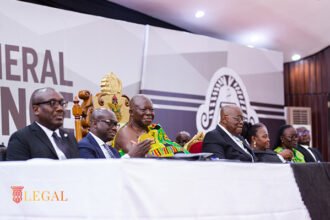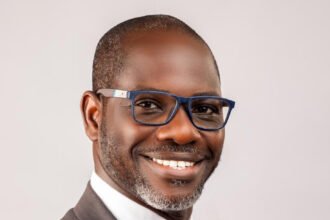
Published August 28, 2024
The University of Professional Studies (UPSA) Law School and the Chartered Institute of Taxation Ghana, on Monday 19th August 2024 held a Public Lecture at the Kofi Konadu Auditorium under the topic: “Tax Myth”.
The lecture featured distinguished and prominent tax experts from both Academia and Industry.
The Guest of Speaker of the occasion, Prof. Rita de la Feria, Chair in tax Law, University of Leeds/International Research, Fellow at the Oxford University. She underscored the need for governments to relook at the notion of tax being the panacea or solutions for revenue generation adding that it is imperative for Governments to take another look at the tax regimes and systems it seeks to implement. “People want taxes to be paid but they do not want it coming from them. If you cannot define the rich you cannot tax the rich,” she added.
The Tax Law Professor identified three key Tax Myths she believes needs to be demystified. The first Myth she believes is the notion that there exists a “Perfect Tax System”. She believes that “(Tax) equity and efficiency principles must be balanced against other (non-tax) principles”.
She further stated that taxes should be equitable, both vertically (fair distribution of the burden amongst those with different incomes), and horizontally (fair distribution of the burden amongst those with similar incomes)” and that “Taxes should minimize economic distortions, enhanced welfare, yield more benefits than costs” among others
Prof. de la Feria further indicated that the “Just Tax It” myth often results in the neglect of the role of legal design in taxation, stating that the “Growing awareness of importance of legal design in criminal justice studies: situational crime prevention has taken-off in many policy areas, but not taxation”. This she believes, if properly situated within context during tax policy formulation will go a long way in addressing the many challenges of taxation in the revenue mobilization drive of Governments.
Finally, is the myth of “My Gut Tells Me…” This relates to how the role of political economy of taxation is often been neglected. Political economy is fundamental for tax reforms. She indicated that individuals’ opinion on taxation are mostly intuitive and heavily influenced by a range of cognitive biases and heuristics.




The President of CITG, Mr. Ohene-Kwatia underscored the need for the populace to embrace taxation as a patriotic duty by all to enable government raise the needed revenue for national development.
On his part, Dr. Martin Yamborigya, Assistant Commissioner and Head of Audit, GRA stated that even though most tax payers are not oblivious of the need to and importance of paying taxes, “Taxes, when properly collected and managed, can really propel economic growth”.
Theophilus Tawiah, Lecturer at the UPSA law School, highlighted that the collaboration between the UPSA law school and the Chartered Institute of Taxation Ghana on the public lecture is to provide a platform for tax law and policy discussion. He indicated that taxation remain central to our survival and that demystifying the myth will do a world of good to improve society.











